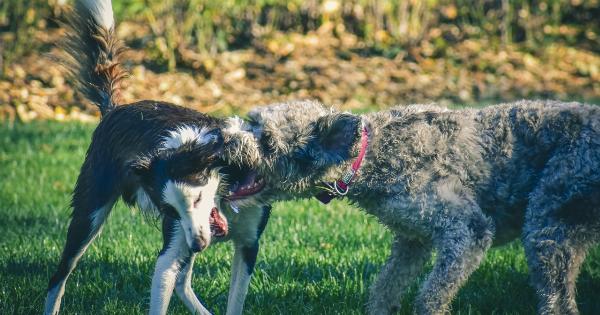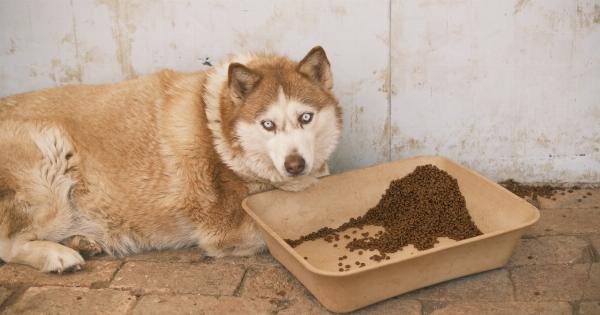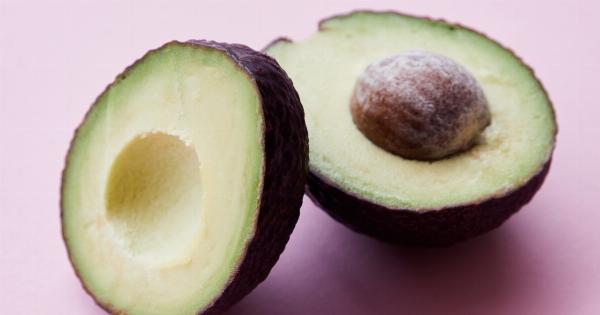As a responsible dog owner, it’s essential to provide your growing dog with proper nutrition to support their development and overall health. Just like humans, dogs go through different life stages with unique dietary requirements.
To ensure your furry friend’s optimal growth, it’s crucial to understand what to look for when choosing their food. Here are some important factors to consider:.
1. Age-appropriate formulas
Choosing a dog food specifically formulated for your dog’s age is crucial. Puppies, adult dogs, and senior dogs all have different nutritional needs.
Puppy formulas are specially designed to provide essential nutrients for rapid growth, while adult formulas focus on maintaining good health. Senior formulas typically have fewer calories to prevent weight gain in older dogs.
2. High-quality protein
Protein plays a vital role in your dog’s growth and development. Look for dog foods that list high-quality sources of animal protein, such as chicken, beef, or fish, as the primary ingredient.
These proteins contain essential amino acids that help build strong muscles, tissues, and organs.
3. Essential fatty acids
Fatty acids, such as Omega-3 and Omega-6, are essential for your dog’s skin, coat, and overall health. These nutrients help maintain a shiny coat, reduce inflammation, and support brain development.
Look for dog foods that include sources of these fatty acids, such as fish oil or flaxseed.
4. Adequate calories
Growing dogs need more calories than adult dogs to support their energetic lifestyle and growth. It’s important to choose a dog food that provides enough calories to meet their daily energy requirements.
Consult with your veterinarian to determine the appropriate calorie intake for your specific breed and size of dog.
5. Beneficial additives
Some dog food brands include beneficial additives like probiotics, prebiotics, and antioxidants. Probiotics promote a healthy gut by supporting the growth of beneficial bacteria, while prebiotics serve as food for these good gut bacteria.
Antioxidants, such as vitamins C and E, help support your dog’s immune system. These additives can contribute to your dog’s overall well-being.
6. Avoid fillers and artificial additives
Avoid dog foods that have excessive fillers and artificial additives. Fillers provide little nutritional value and can lead to weight gain. Artificial additives, such as colors, flavors, and preservatives, may cause allergies or digestive issues.
Opt for dog foods with natural ingredients and minimal additives to ensure a healthier diet for your dog.
7. Consider breed-specific formulas
Some dog food brands offer formulas specifically tailored to certain breeds. These formulas consider the unique needs and potential health concerns of specific breeds.
For example, large breed formulas may have controlled calcium levels to support proper bone development. Consider choosing a breed-specific formula if available.
8. Read and understand the labels
When selecting dog food, carefully read and understand the labels. Look for specific information about the ingredients, guaranteed analysis, and feeding guidelines.
The ingredients list should have recognizable and high-quality sources of protein, fruits, vegetables, and grains. The guaranteed analysis shows the minimum percentages of protein and fat and the maximum percentage of fiber and moisture. Follow the feeding guidelines to ensure you are providing the right amount of food for your growing dog.
9. Monitor your dog’s weight and overall health
Proper nutrition is not a one-size-fits-all approach. It’s vital to monitor your growing dog’s weight and overall health regularly. Make adjustments to their diet as needed.
If your dog is gaining too much weight, consider decreasing their food portion or switching to a lower-calorie formula. On the other hand, if they are losing weight or not thriving, consult with your veterinarian to ensure they are receiving adequate nutrition.
10. Gradual transitions and consultations
When introducing any changes to your dog’s diet, it’s important to do so gradually. Sudden dietary changes can cause digestive upset. Mix small amounts of the new food with their current food, gradually increasing the portion over a week.
Also, consult with your veterinarian before making any significant dietary changes or if you have any concerns about your dog’s nutritional needs.





























